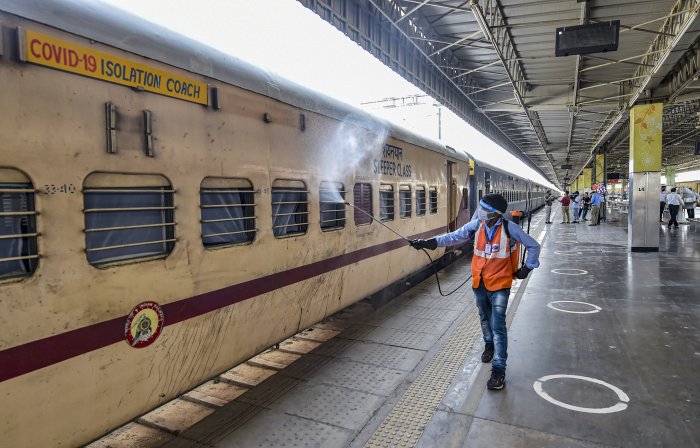NEW DELHI: A parliamentary panel has raised concerns over the losses incurred by the Indian Railways passenger services especially due to its social service obligation, and suggested that the national transporter rationalise both freight and passenger fares “prudently”.
The Standing Committee on Railways on ‘Demands for Grants (2020-21) of the Ministry of Railways’, which submitted its report in the current session of Parliament, has stated that there is a need to revisit the components that constitute social service obligations of the national transporter.
“The committee is concerned to note the losses incurred by the railways in passenger services purportedly due to the social service obligations which, inter alia, include pricing tickets at fares lower than costs, passenger concessions.
“The predicament of the railways is that the profits earned from freight business are utilised to compensate for the lossess incurred on passenger and other coaching services, thereby adversely affecting both freight and passenger business. It, therefore, becomes imperative that both freight and passenger fares are rationalised prudently,” it said.
The committee also said since the demand for transport is elastic in a competitive market, it would like the railways to be mindful of the fact that any increase in fares should be confined to a certain limit depending upon the competition from other transport modes.
It said that the operational efficiencies of the railways in both freight and passenger business have to be leveraged to a greater extent so as to retain the customer base and enhance revenues.
The railways, in its response, said the National Institute of Public Finance and Policy (NIPFP) has been engaged to carry out a study on “Developing a mechanism for computing the value of Social Service Obligations (SSO) being borne by Indian Railways in 2017”.
The NIPFP’s recommendation regarding the elements constituting social service obligations (SSOs) of the Indian Railways are concessions in passenger fares, losses on uneconomic branch lines (UBLs), losses on strategic lines not compensated by the Finance Ministry, losses on account of electric multiple unit suburban services, losses on account of fares below cost and loss on commodities (low rated).
“It is submitted that rationalisation of fare and freight is an ongoing process and at times, it is fixed keeping in view the market, alternate modes of transport, economic situation of the country. Taking into account all relevant factors, the rationalisation of fare was done with effect from January 1, 2020,” the railways said in its reply.
The committee has also suggested that the railways should strengthen their planning, management and monetary mechanisms to earn substantial non-fare revenues through various methods/sources, already intended and put in place. (AGENCIES)


